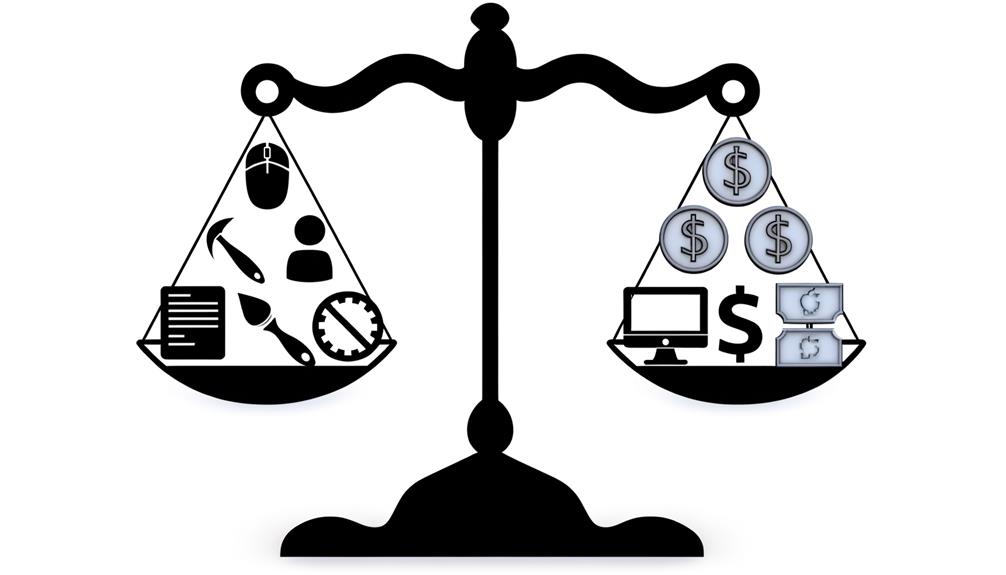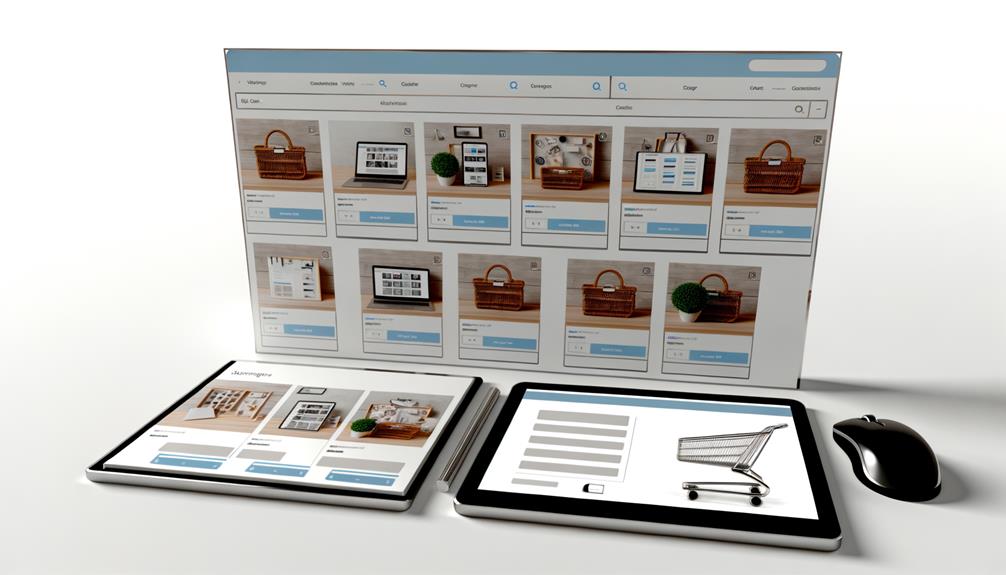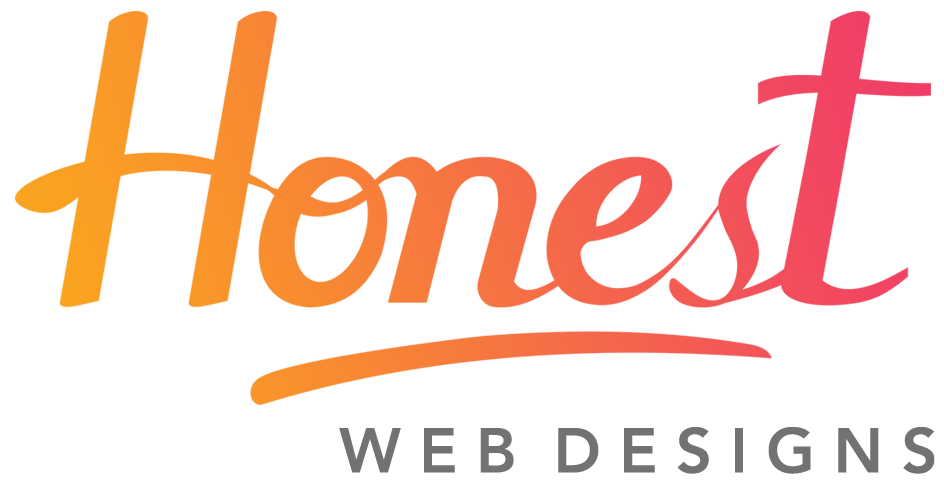As we navigate the ever-evolving landscape of website builders, the quest for the perfect platform can often feel like a daunting task. With an array of options available, each boasting its own set of features and functionalities, the decision-making process can be overwhelming.
However, by exploring the 15 best website builders today and understanding the key factors to consider when choosing the right one, we can navigate this terrain with confidence and precision.
From cost considerations to the significance of out-of-the-box features and third-party integrations, we will unravel the intricate web of website builder options, equipping you with the knowledge to make an informed decision that aligns seamlessly with your vision and objectives.
Cost Considerations

When evaluating website builders, cost considerations play a crucial role in determining the most suitable option for our needs. By prioritizing our budget, we can rule out expensive options and focus on finding the best value.
It's important to weigh the pros and cons of free versus paid website builders, taking into account any additional costs for extensions and integrations. We must also consider the significance of out-of-the-box features, ensuring that the builder offers the necessary functionality without the need for later installations.
Out-of-the-box Features
Considering cost and functionality is crucial when evaluating website builders.
Now we'll explore the significance of out-of-the-box features in selecting the most suitable option for our needs.
Out-of-the-box features are essential as they provide built-in functionality that can save time and effort. These features, such as auto-save, drag-and-drop editors, and specialized templates, eliminate the need for later installations, enhancing efficiency.
By checking for necessary features upfront, we ensure a smoother website building process.
Additionally, while no website builder has every feature, the ability to add missing features through extensions and integrations with third-party apps is valuable.
This flexibility allows us to tailor the website to our specific requirements, providing the liberation to create a unique and fully functional online presence.
Extensions and Integrations

We prioritize seamless functionality and customization by carefully assessing the extensions and integrations available within website builders. When considering extensions and integrations, it's important to evaluate:
- Compatibility with third-party apps
- Ability to add missing features like forms and live chat
- Cost of premium add-ons
- Flexibility for future growth
- Impact on website performance
Ensuring that the website builder offers a wide range of extensions and integrations can empower us to enhance our site's capabilities as our needs evolve.
Squarespace
In our assessment of website builders, Squarespace emerges as a popular and versatile choice, offering a range of templates and a user-friendly drag-and-drop editor. Its built-in e-commerce functionality makes it suitable for various types of websites, providing a seamless experience for businesses and individuals alike.
With a solid G2 rating, Squarespace proves to be a reliable option for those seeking to establish their online presence. Its blend of flexibility and ease of use allows for liberation in creating a website that aligns with one's vision without the need for extensive technical expertise.
Whether you're a small business owner, creative professional, or entrepreneur, Squarespace offers the tools and features necessary to bring your ideas to life on the web.
Shopify

Shopify stands out as a well-established platform renowned for its robust capabilities in powering e-commerce websites. Here's why it's a strong contender in the website builder market:
- Customizable templates and designs
- Advanced tools for inventory management and payment processing
- Seamless integration with various third-party apps
- Robust support for e-commerce functionality
- Strong reputation and customer satisfaction
When considering Shopify as a website builder, it's important to prioritize e-commerce needs, such as inventory management and payment processing, alongside the flexibility of design and integration with third-party apps. Shopify's reputation and customer satisfaction also make it a reliable choice for those seeking a liberated e-commerce experience.
Hostinger
With its reputation for providing robust support for e-commerce functionality, Hostinger offers an affordable and user-friendly website building platform, positioning it as a strong contender in the market.
Hostinger's intuitive interface and a wide range of templates make it an appealing choice for individuals and small businesses looking to establish a strong online presence.
Additionally, its hosting services provide a convenient all-in-one solution. Hostinger's commitment to affordability without compromising on quality gives users the freedom to explore and create without financial constraints.
The platform's user-friendly approach and robust e-commerce features embody the liberation that modern website builders strive to offer.
As a strategic and cost-effective option, Hostinger empowers users to build and manage their websites with confidence and ease.
WordPress.com

WordPress.com offers a diverse range of themes and plugins, making it a versatile choice for bloggers and businesses seeking a robust content management system. Our team found the following key points about WordPress.com:
- Wide variety of themes and plugins to customize your website
- Suitable for bloggers, small businesses, and large enterprises
- Robust content management system for easy website maintenance
- Integration with third-party apps for added functionality
- Responsive customer support to assist with any queries
WordPress.com's flexibility and scalability make it an ideal choice for those seeking a user-friendly yet powerful website builder. With its extensive features and customization options, it provides the liberation to create a website tailored to individual needs while ensuring a seamless user experience.
10Web
When considering website builders, it's important to carefully evaluate the available options based on cost, functionality, and flexibility to ensure the best fit for your specific needs.
As we explore the current landscape of web builders, it's essential to prioritize liberation and flexibility in design and functionality. Our audience seeks a strategic approach, empowering them to create a unique online presence without constraints.
From user-friendly interfaces to customizable templates, the web builders available today offer a wide range of features to suit diverse needs.
With a confident understanding of these options, we can strategically select a web builder that aligns with our vision and empowers us to craft an exceptional online platform.
Pixpa

Pixpa offers a range of templates and customization options designed to cater to the needs of photographers, artists, and designers seeking to create visually stunning and functional websites.
The templates are tailored for creative professionals, ensuring a visually appealing online presence.
Customization options allow for personalized branding and unique website designs.
Portfolio features enable the showcase of creative work in a professional and engaging manner.
E-commerce functionality supports the monetization of creative products and services directly from the website.
The platform's user-friendly interface and intuitive tools empower creatives to build and manage their websites with ease.
Pixpa provides a comprehensive solution for individuals seeking to showcase their creative work and sell their products online.
Weebly
After exploring the features tailored for creative professionals in the previous subtopic, we now shift our focus to Weebly, a user-friendly website builder offering templates and a drag-and-drop editor for creating websites with ease.
Weebly is a liberating platform for small businesses and personal websites, providing an intuitive interface that empowers users to bring their online presence to life. The platform's e-commerce functionality further enhances its versatility, catering to entrepreneurs looking to establish or expand their online stores.
Weebly's commitment to simplicity and flexibility makes it a strong contender for individuals seeking liberation from the complexities of website development. With Weebly, users can confidently embark on their online journey, knowing they've a reliable and accommodating partner to support their digital endeavors.
Duda

Duda stands out as a versatile website builder, offering a range of templates and customization options tailored to the needs of agencies and businesses.
With Duda, we can expect:
- Customization: Duda provides extensive customization options, allowing us to create unique and tailored websites for our specific needs.
- Team Collaboration: The platform offers tools for seamless team collaboration, making it easier to work together on website projects.
- E-commerce Functionality: Duda includes robust e-commerce features, enabling businesses to set up and manage online stores efficiently.
- Responsive Design: The builder ensures that websites are optimized for various devices, providing a seamless user experience across different screen sizes.
- Scalability: Duda's scalability makes it suitable for businesses of all sizes, allowing for future growth and expansion.
We can confidently consider Duda as a strategic choice for creating powerful and customizable websites that meet the unique requirements of agencies and businesses.
Google Sites
When considering website builders, Google Sites offers a free and user-friendly option with templates and a drag-and-drop editor, making it suitable for creating simple websites and internal company pages. It integrates seamlessly with other Google services, providing a familiar environment for users. Here's a comparison of Google Sites with other popular website builders:
| Website Builder | Cost | User-Friendliness | Flexibility |
|---|---|---|---|
| Google Sites | Free | Very user-friendly | Limited customization |
| Squarespace | Paid | User-friendly | Highly flexible |
| Wix | Free and Paid | Very user-friendly | Highly flexible |
Google Sites excels in providing a cost-effective and straightforward solution, making it ideal for those seeking a liberating and hassle-free website building experience.
Ucraft

Moving on from our exploration of Google Sites as a cost-effective and user-friendly option, Ucraft offers a website builder with a focus on design and customization options, making it suitable for creative professionals and small businesses.
- Intuitive drag-and-drop editor
- Wide range of customizable templates
- Built-in e-commerce functionality
- SEO tools for better online visibility
- Mobile-responsive designs for accessibility
Ucraft empowers users to create visually stunning websites without sacrificing functionality. The platform's emphasis on design and customization, coupled with its built-in e-commerce capabilities, makes it an appealing choice for those seeking to unleash their creativity and establish a strong online presence.
With Ucraft, users can confidently express themselves and their brand while ensuring a seamless and liberating website building experience.
How to Choose
As we assess the myriad options available, it's crucial to carefully consider our specific needs and priorities when choosing a website builder.
Firstly, determining our budget helps prioritize features and rule out expensive options.
We must also evaluate the importance of out-of-the-box features, such as auto-save and drag-and-drop editors, to avoid the need for later installations.
Additionally, checking for extensions and integrations with third-party apps is essential to ensure the ability to add missing features like forms and live chat.
Considering these factors will help us make a strategic decision that aligns with our goals and desires for liberation.
Frequently Asked Questions
What Are the Key Differences Between Using a Website Builder and Hiring a Professional Web Developer?
When choosing between a website builder and hiring a professional web developer, it's important to consider the trade-offs.
While a website builder offers cost-effective and user-friendly solutions, a professional web developer provides customized designs and advanced functionality.
Our team weighs the benefits of each option, ensuring a strategic approach that aligns with our goals and budget.
Can Website Builders Handle Complex E-Commerce Needs, Such as Inventory Management and Payment Processing, for Large Businesses?
Yes, website builders can handle complex e-commerce needs like inventory management and payment processing for large businesses. They offer customizable templates, integrations with third-party apps, and built-in e-commerce functionality.
Considerations for choosing one include evaluating cost, built-in features, and flexibility. Budget helps prioritize features, ruling out expensive options and factoring in additional costs for extensions and integrations.
Our experience shows website builders can meet diverse e-commerce needs effectively.
How Do Website Builders Compare in Terms of Search Engine Optimization (Seo) Capabilities and Tools?
When comparing website builders for SEO capabilities and tools, we prioritize features like:
- Customizable meta tags
- Mobile responsiveness
- Easy integration with Google Analytics
We also consider built-in SEO tools and the ability to optimize content for keywords.
Our strategy involves evaluating each builder's SEO features to ensure they align with our marketing goals and help boost our online visibility.
Are There Any Limitations or Drawbacks to Using a Website Builder Instead of Coding a Website From Scratch?
We find that using a website builder has limitations and drawbacks compared to coding a website from scratch.
While website builders offer convenience and ease of use, they may limit customization and functionality.
Additionally, reliance on a website builder's infrastructure can impact performance and flexibility.
Understanding these trade-offs is crucial in making an informed decision that aligns with our goals and priorities.
What Are Some Common Challenges or Issues Users May Encounter When Migrating Their Website From One Website Builder to Another?
When migrating a website from one builder to another, challenges may arise such as:
- Content reformatting
- Loss of SEO rankings
- Broken links
We understand the frustrations and complexities associated with this process. We recommend:
- Thorough planning
- Content backup
- SEO preservation strategies
Our expertise in seamless website migrations ensures a smooth transition with minimal disruptions, empowering you to evolve your online presence effortlessly.
Conclusion
In conclusion, it's clear that the decision of choosing the best website builder isn't something to be taken lightly. With careful consideration of cost, built-in features, and flexibility, along with the potential for extensions and integrations, we can confidently select the right platform for our specific needs.
By evaluating the options such as Squarespace, Shopify, Duda, Google Sites, and Ucraft, we can make an informed decision that aligns with our goals.







